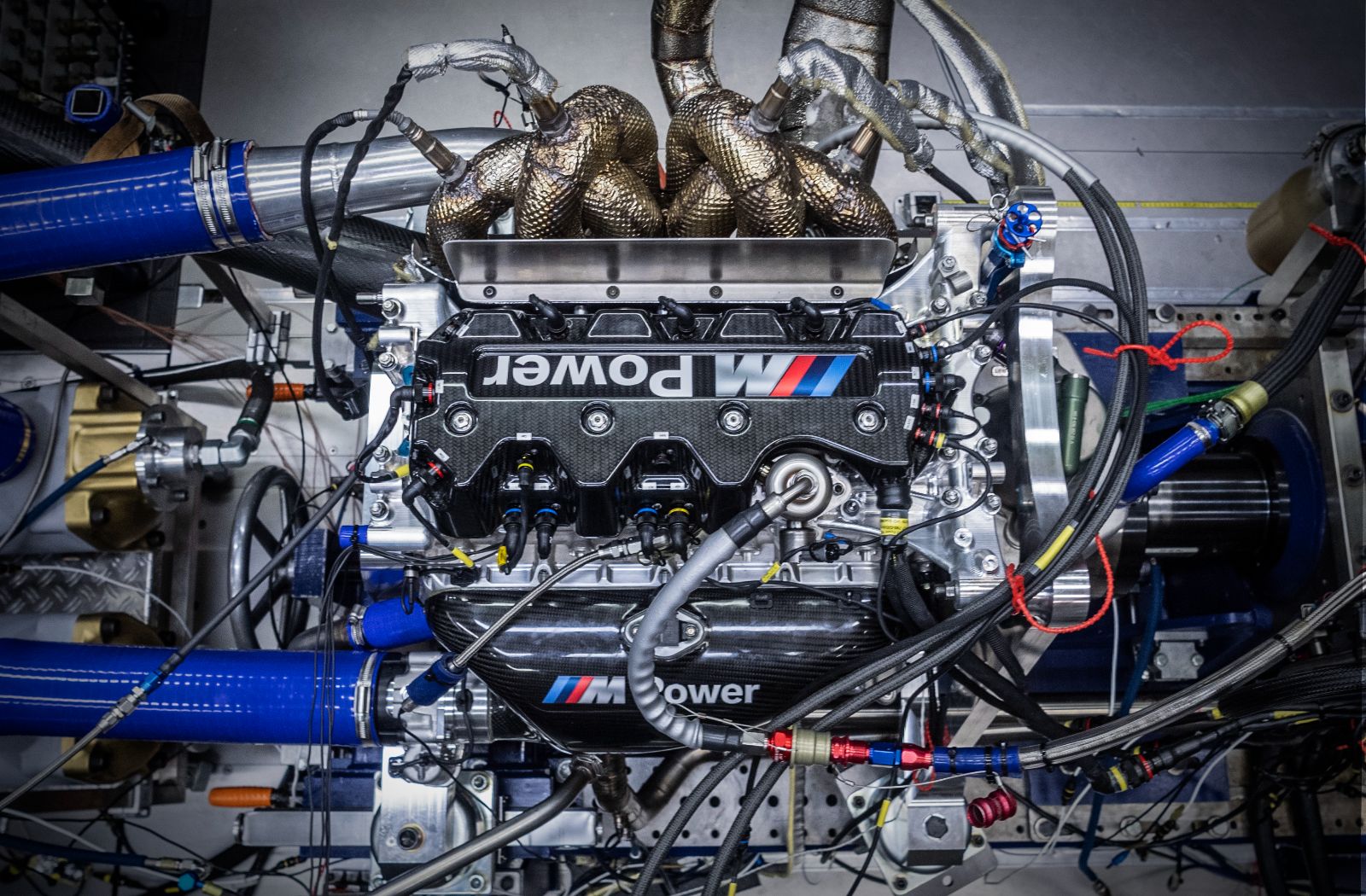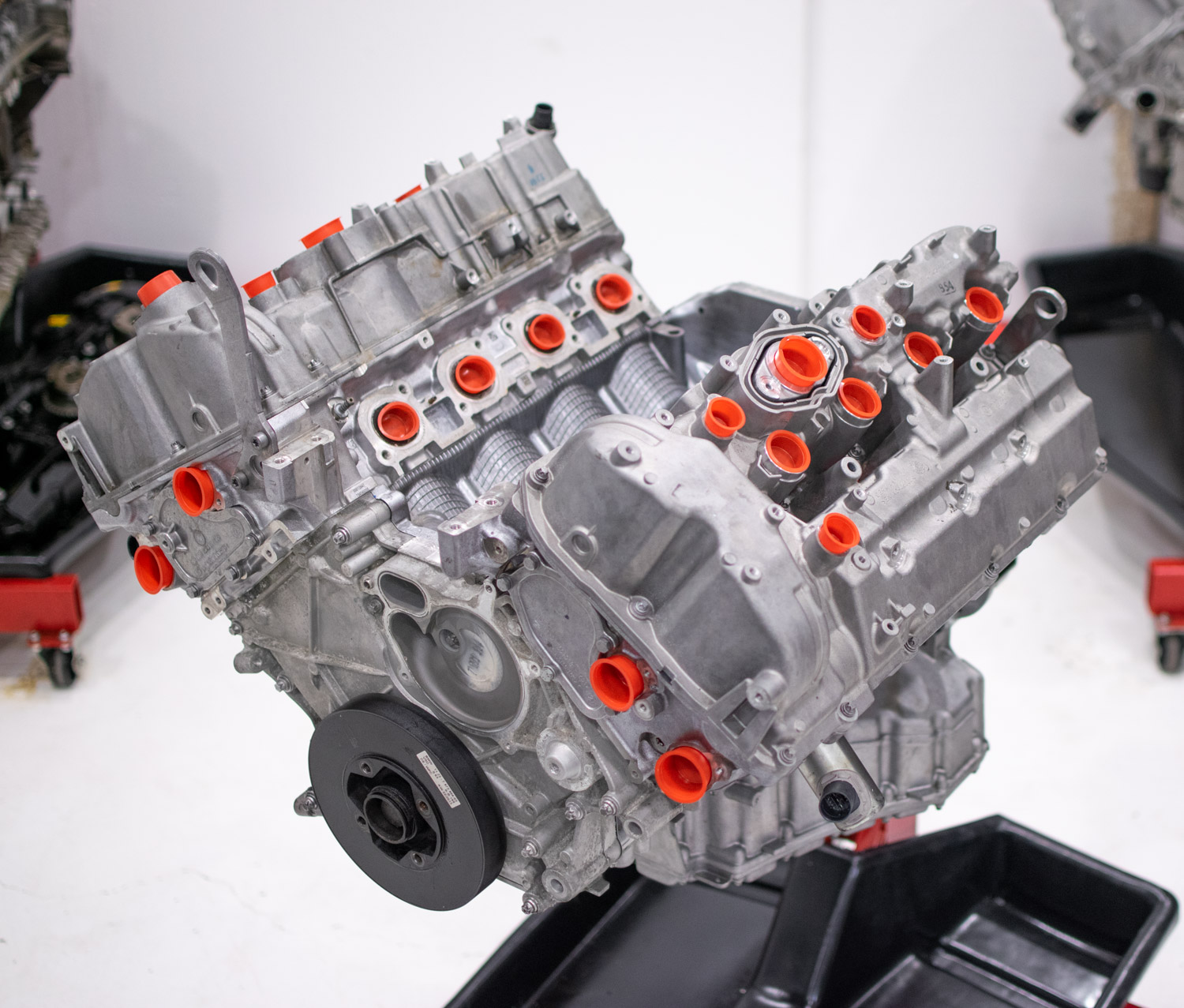Exploring the Efficiency Enhancements of the Latest BMW Engine Models
Exploring the Efficiency Enhancements of the Latest BMW Engine Models
Blog Article
Introducing the Intricacies of Next-Generation Power Units: a Deep Dive Into Advanced Engine Styles and Advancements
As we stand on the precipice of a brand-new age in transportation, the intricacies of next-generation engine layouts beckon us to discover the advanced modern technologies and technologies that assure to redefine the driving experience. Digging much deeper into the worlds of exhaust control, intelligent engine monitoring systems, and the horizon of power device development, we discover ourselves on the cusp of an improvement that guarantees to improve the landscape of movement as we recognize it.
Evolution of Engine Materials

The change towards advanced engine materials has likewise made it possible for engineers to develop engines with greater power results while keeping gas effectiveness criteria. The use of lightweight materials decreases the general weight of the engine, leading to improved fuel economic climate and reduced discharges. Furthermore, innovations in materials innovation have permitted far better thermal management within engines, causing enhanced reliability and long life.
Turbocharging and Supercharging Technologies
Just How do Turbocharging and Supercharging Technologies change engine performance and efficiency in modern-day automobiles? Turbocharging and turbo charging are modern technologies that significantly enhance engine efficiency by boosting the quantity of air consumption into the burning chamber. Turbocharging accomplishes this by utilizing a generator driven by exhaust gases to pressurize the consumption air, while turbo charging uses a belt- or chain-driven compressor to attain the exact same effect.
These innovations enable smaller sized, extra fuel-efficient engines to create power equal to larger ones, referred to as downsizing. Forcibly more air right into the cylinders, turbo charging and turbocharging enhance burning effectiveness, resulting in boosted horsepower and torque outcome without a significant rise in engine dimension. This leads to much better velocity, hauling ability, and total driving performance.
Additionally, supercharging and turbocharging add to boosted gas effectiveness by permitting the use of smaller engines that eat less gas under typical driving problems - bmw engine. This mix of enhanced performance and performance has made turbocharging and turbo charging integral elements of several modern engine styles
Exhaust Control and Environmental Effect
With increasing worldwide problems regarding air quality and environmental sustainability, the execution of exhaust control technologies in cars plays an essential function in lowering unsafe pollutants released into the atmosphere. Modern cars are furnished with advanced emission control systems that help minimize the environmental impact of auto operations. Catalytic converters, for circumstances, are developed to transform poisonous gases such as carbon monoxide gas, nitrogen oxides, and hydrocarbons right into much less harmful substances like carbon dioxide and water vapor.
Furthermore, advancements in engine technology, such as the combination of exhaust gas recirculation systems and selective catalytic reduction, have actually substantially added to decreasing exhausts. These modern technologies function in tandem to enhance combustion efficiency and lessen the launch of damaging contaminants into the air. In addition, the growth of crossbreed and electrical lorries stands for a vital step towards lowering the my latest blog post overall environmental impact of the transportation sector.
Intelligent Engine Monitoring Solution

Moreover, these systems enable lorries to meet stringent exhausts standards without endangering performance, giving a more ecologically pleasant driving experience. The combination of artificial knowledge and machine discovering capacities in engine administration systems remains to push the borders of what is possible, causing further renovations in effectiveness, integrity, and overall lorry performance. bmw engine. As vehicle modern technology breakthroughs, intelligent engine monitoring systems will play a vital role in shaping the future of transport in the direction of a more lasting and reliable instructions
Future Trends in Power System Development
As intelligent engine monitoring systems lead the way for improved control and optimization in contemporary automobiles, future trends in power unit advancement are positioned to redefine the landscape of auto propulsion technologies. One of the vital trends driving advancement in power system growth is the change in the direction of electrification. With an increasing emphasis on sustainability and reducing carbon emissions, hybrid and electric powertrains are ending up being a lot more widespread in the auto industry. These alternative power resources provide boosted efficiency and efficiency while lining up with rigid ecological laws.
One more considerable pattern is the integration of advanced materials and manufacturing techniques. Lightweight products such as carbon fiber and light weight aluminum are being used to minimize total automobile weight, improving fuel performance and performance. Additionally, advancements in 3D printing and additive manufacturing are enabling the manufacturing of complicated engine components with greater precision and sturdiness.
Additionally, artificial knowledge and machine understanding are playing a crucial duty in enhancing power system efficiency. These innovations permit real-time tracking and flexible control, causing much more advice trusted and effective power distribution. In general, future fads in power system development are geared towards sustainability, efficiency, and efficiency, driving the automotive market in the direction of a new age of propulsion technologies.

Final Thought
In conclusion, the innovations in engine materials, turbocharging, exhaust control, and intelligent monitoring systems have led the way for next-generation power systems. These developments have not only better efficiency and efficiency but likewise decreased environmental impact. As modern technology continues to evolve, future patterns in power device development are click likely to concentrate on additional enhancing sustainability and optimizing power result. The elaborate designs and technologies in contemporary engines showcase the recurring evolution of auto innovation.
Exploring the progressive developments in engine products has actually been crucial in boosting the efficiency and efficiency of modern engines. Over the years, the evolution of engine materials has played a crucial role in pushing the boundaries of what engines can achieve.The shift towards advanced engine materials has actually additionally enabled engineers to develop engines with higher power outcomes while keeping fuel effectiveness requirements.The application of intelligent engine administration systems in contemporary automobiles has reinvented the method engines are managed and optimized for performance and performance. By accumulating information in real-time and assessing it with advanced algorithms, intelligent engine administration systems can adjust to driving styles, environmental variables, and engine wellness to take full advantage of power outcome while reducing gas intake and discharges.
Report this page